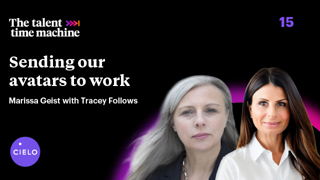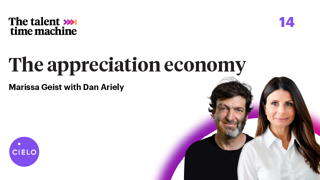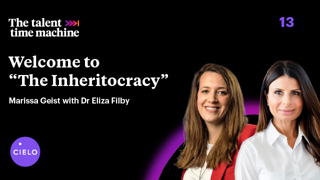Episode 8 summary
November 5, 2024 // 32 min, 38 sec
Established professionals have one view of the future of work. The generation who will be living and working in that future have a very different one. They will be the leaders in 2050, so what do they want from employers and how will they shape work to meet their expectations?
In this episode:
Marissa hears from three of these voices: college students or grads at the start of their careers. Shradha Godishala, Jonathan David and Juan Lopez. Between them they’re studying mathematics, biology, business administration, entrepreneurship IT management and finance. They’re also all participants in Fuse, the Milwaukee Tech Hub’s summer AI bootcamp.
- Is the education we offer students today giving them what they need to build the future they want?
- Will company culture and values still be attractive to a new generation of workers who demand employers walk the talk?
- Will the lines between work and private and social lives blur, or will we still look for a sense of community from our jobs?
- What will it take to build an organization talent wants to contribute to in 2050?
Episode transcript
Marissa Geist
Welcome to the Talent Time Machine, the podcast for talent leaders that takes you on a trip to work in 2050. We're going to think about trends, possibilities, and new realities for talent. I'm Marissa Geist.
Over many episodes, I've spoken with futurists, practitioners, academics, and anthropologists about the future of work and what it means for us here and now.
But there's been one voice missing: the young person who will actually be working in the world of work of 2050. Today's college grad, tomorrow's leader.
Today I'm joined by not one, but three of these voices to ask how they see their future. They are Shradha Godishala, Jonathan David and Juan Lopez.
Welcome.
Juan Lopez
Thank you for having us.
Shradha Godishala
Thank you.
Marissa Geist
Great to have you in the studio. Okay.
Between all of you, you're studying mathematics, biology, business administration, entrepreneurship, I.T. management and finance. It's like, there should be five of you in this room!
And you all participate in Fuse, the Milwaukee Tech hub summer boot camp. And I should really start by noting that when we surveyed listeners, this was the number one most suggested topic they wanted to hear about.
So that's where we're going to start, because all of you will be in your late 40s in 2050. And when you think about your future self, how big does work figure into your life? What kind of job do you have? What kind of expectation do you have?
Shradha Godishala
Yeah. So, my name is Shradha. I'm going to be an incoming sophomore at University of Wisconsin-Madison. I'm studying data science and econ with a, a certificate in, entrepreneurship.
For me, I think exploring, like, creative-ness in my career is kind of important to me.
I think right now, where I'm kind of seeing my future is like, sort of like the startup space, like fintech startups. Being able to sort of have those responsibilities of, like building an idea is something that I find so cool. And I think, being able to share that, like saying, like, I'm an entrepreneur.
It's a conversation in itself, being able to go somewhere and be like, I created this or this is something that I like. This is something I care about. It's something that I envision for my future.
Marissa Geist
Incredible. Okay, well, thank you very much.
Jonathan David
Well, I'm Jonathan David. I recently graduated from the University of Wisconsin-Milwaukee, with a degree in business marketing and a certificate in entrepreneurship… I didn’t know you were going for entrepreneurship!
Shradha Godishala
Sweet!
Jonathan David
Yeah. Exciting.
Where do I see myself in my mid to late 40s? Where does work fit into all that?
Mid to late 40s? Wherever I am, I hope I'm having fun, surrounded by the people that I love. I've always been like a big experience person. I like to experience. And I think that's what drives me, what brings me towards marketing, is like making a good experience or I guess specifically the CX side of marketing.
I would like to work at larger ad agencies, maybe in, like, my 30s. Ultimately, I want to open up my own shop. A full service shop. And hopefully from there, using the production equipment that I have make some movies, I would like to…
Marissa Geist
What kind of movies?
Jonathan David
You know, I don't know. Yeah, maybe like romance, horror. I'm a big horror person.
Marissa Geist
Take romance and horror, put it together? There’s love, there’s death.
Jonathan David
Oh, hey, they did that.
Marissa Geist
It's so interesting because, one of the interesting things that people talk about in your generation is that people won't use work as the primary identifier for who they are.
So now, traditionally someone… you know, I'm Marissa, I'm a CEO, I work at Cielo. That's how I describe myself. But the speculation is that your generation won't start the conversation with, this is what I do for work. It will be, I'm Shradha and I have starred in Jonathan's horror slash romance films together.
So do you think that that'll be a primary identifier, or do you think that's going to be something else?
Jonathan David
You know, I’ve been reading this book called A New Earth, Awakening to Your Life's Purpose by Eckhart Tolle. And there was like a big section on not over identifying with, I guess, the things about you like your job or like, a mother, or father, trying not to make that like yourself. So I'm trying to, like, kind of separate myself from, like, all labels and just be my just be me.
I'm Jonathan Happy.
Juan Lopez
I like that you mentioned you know oftentimes we put we get put into confines of labels. Right. And knowing how to detach from that. I 100% agree to that.
Shradha Godishala
I think also when you take away labels, you're not confined to something. So this is kind of outside of my career, but I like never thought I was an athletic person growing up. And then my senior year of high school, I got put into this strength class that I accidentally got put into.
And now I'm like, I lift, I love fitness, I'm like thinking about being an instructor one day. So it kind of just like opens doors that like you wouldn't even know were actual doors.
Marissa Geist
So that’s actually a really interested point because people have speculated about your generation being online only, and do they even care about seeing other people? And I have only heard that you all like to be with people and have experiences… So in 2050, is work going to provide the social aspect of connectedness? Is that still going to be a thing or are you going to find it someplace else?
Juan Lopez
I hope so.
Just as a quick little introduction about me. My name is Juan Lopez. I am a double major in IT management and finance, currently studying at UW-Milwaukee. Where I foresee myself is specifically working in the IT department in the financial industry. Eventually that’s the end goal, for sure.
As far as for me, eventually down the line at in 2050, I value having a work-life balance. Right. I value, you know, getting to know other people outside of work as well. I'm a people person at the end of the day. And when you work remote, it restricts that, it restricts all that social aspect of getting to collaborate, you know, seeing face to face, you know, individuals and coworkers that you work around with.
So I personally value getting to work together face to face. I value that first and foremost. So my answer is I hope so, yeah. Because you never know, because we’re in a society where it's AI, it's innovative. Things are changing rapidly right here, left, right and center.
So you never know what's going to happen in 2050. But my hope is that, I do value seeing, you know, working with individuals face to face.
Jonathan David
I agree, and that's kind of something I look for in an employer. Like, are there going to be opportunities specifically to network with people my age? And also, you know, all coworkers?
Shradha Godishala
For me, I think I feel like everyone has different, visions for their future and for me, like, I love traveling, I love hearing I'm a big yapper, I love talking. So if I'm put into a group of people, I could talk for hours. And so for me, like, that's really important for me because I've seen the most growth in who I am.
And like learning what I value when I'm face to face with people, when I'm like in an elevator waiting for the next stop, like, oh, like I love doing that, or like, even like.
Marissa Geist
There's actually a study that came out of Madison about how that breaks a cultural norm.
Shradha Godishala
It's like, yeah, it's.
Marissa Geist
Like how people don't talk in the elevators. So you are truly an extrovert if you talk in elevators.
That's really important because in 2050, that sounds like it will still be just as important as it is today as it was 30 years ago.
So don't believe the hype that everyone just wants to stay home and be on the computers and talk over headsets.
Juan Lopez
I mean there's moments for it, right? There's moments, you know, you may have an emergency here and there and you may need to work from home. So don't get me wrong, there's benefits to it as well. Working from remote. But ultimately, you know, I, I do value… and it seems like you guys agree with as well as that face to face interaction.
Jonathan David
Oh yeah.
Marissa Geist
Okay. So I want to switch gears. You mentioned education. What you what you've all studied. You're all the Milwaukee Tech Hub for the summer camp. So it must have given you something that you didn't find at your traditional education. So one, I just want you to talk a little bit about the program, if you don't mind.
And then secondly, in 2050, do you think formal education has the same role? Is it different? Is it more important, less important, just totally reimagined? What do you think?
Juan Lopez
Yeah sure. So just to give everyone some insight as far as what Milwaukee Fuse is, it is a summer boot camp which provides you with hands on experience developing an AI prototype and then presenting that.
So it was like a six week workshop where you developed the prototype and then you present it on a demo day on the final live day presentation. So that's what it's about first and foremost.
But to answer your question on it is, I found it very insightful. The fact that you actually get to do something hands on compared to, like, actually listening towards a lecture, you know, in class and eventually down the line is memorizing a bunch of word jargon, then spitting it out on a test.
Right. So that's one thing. I mean, don't get me wrong, education is very important, but what does it doesn't really provide you with that hands on experience like, for example, Milwaukee Fuse does.
Marissa Geist
And do you think… it's 2050, I can get any information I want from AI. Memorization is no longer the name of the game. Or recall is something that's obsolete. Do you need formal education?
Shradha Godishala
Well, I think growing up, like having the internet, having everything at the touch of my fingers, I realize that a lot of the things that I learned face to face with people are like things that I’ve asked my mentors, like that stuff isn't on the internet and isn't on AI.
And so, like if you I feel like you can learn a lot from a lot on the internet, but I think, some of the most beneficial information that I need to like, kind of move forward, is through talking with people. So, obviously the internet, formal education very important. Because I think those are the doors that kind of opened me up to the right people.
Marissa Geist
So the, the reason that formal education is important is networking and connections. Is that what I'm hearing less important than the actual learning, it's the networking?
Juan Lopez
I was about.
Jonathan David
That’s a great benefit to school. I don't know if that's worth what we're paying for it.
Marissa Geist
You're paying a lot of money for those connections. Okay. So you said you've been questioning, is it worth it or what? Like, do you need it? Tell me a little bit more about that.
Jonathan David
I always joke, you Google… Alphabet's next biggest venture could be YouTube University.
The thing everybody jokes about like, oh, you can learn anything from YouTube.
But like, what if they did do that? Like, what if they kind of moved into LinkedIn Learning's like position and then, you know, started curating content that was like actually accurate. And you can get a degree online for very cheap.
Marissa Geist
But it I mean, it's fascinating because, my kids learn all kinds of stuff from YouTube. It's not something that I say, go look on YouTube for the truth. I don't think those words have been uttered, but they will just figure it out themselves
You know, I have a ten year old. Well, he it's eight years away that he's going to need to go to college. Will college be what college is now?
Juan Lopez
I do want to touch on this. It also varies you know depending on the generation because my parents they weren't provided education back in their country. But they always expressed to me the importance of further education. So I kind of geared on their advice as far as pursuing a further education.
Now, where I'm at right now, education, sure, it has provided me a lots of experience, lots of knowledge, but not tangible, hands on experience. Right. Which is ultimately what companies look for at the end of the day. Where I'm at now and my final senior year at UW-Milwaukee, it has provided me with amazing connections, lots of opportunities for networking through organizations, you know, business conferences, so on and so forth.
And I wouldn't be at the place of where I'm at today if it wasn't for education providing me those connections in the first place.
With that said, with Fuse added on there, it also provided that hands on experience, to kind of stand out as well.
Marissa Geist
So if you were someone who was advising universities, seeing what even you've seen coming through and then looking ahead 20 years, what would you say they should start doing now? What should they stop doing now to be more relevant for 2050?
Jonathan David
I would say lean in on like soft skill development, something that you need people for, like public speaking. We both had the same public speaking professor… shout out to Lizzo, or Mizzo.
Juan Lopez
Yeah, Mizzo. Shout out to Mizzo!
Jonathan David
And that was an awesome class. That's probably one of the best classes I've taken at university, and I don't know if I would have been able to build that foundation for public speaking that I did like anywhere else without spending, like a similar amount of money, you know, to go to like, I don't even know what organizations there are around Milwaukee to get better at that.
Marissa Geist
Toastmasters?
Juan Lopez
I mean, look, technical skills, they can they can be taught. But, as far as soft skills, it's a hard skill to learn, especially when it comes to public speaking. If you don't actually expose yourself, actually speak in front of a live audience, you're never going to improve.
Facing uncomfortability and something like, you know, soft skills, public speaking is very important, exposing and being open to be uncomfortable in order to be comfortable in the future.
Marissa Geist
It is interesting because we talk a lot about situational fluency. So adjusting your behavior or your language to who you're in the room with, it's a good inclusive behavior, but it's also important in the professional setting. And if you don't go to a university, you don't go to some place that gives you that, that sort of low risk environment to learn what to do.
And I think that's a really important role that education, higher education plays. It could be networking or connections, but really it's helping you understand what to do and what situations and how to read a room which, like you said, it's a soft skill, but it's hard to learn.
I think that that it doesn't sound that different from when I was going through school. And I still remember taking my econ class going, there's no way I'm ever going to have to calculate the elasticity. And fortunately for the economy and me, I have not had to replicate that.
But you do learn, how to learn. You learn how to network, you learn how to connect with people. And it gives you that, that training wheels of when your frontal cortex isn't all the way formed.
But what would you stop doing? What would you say? Like just take it out. No benefit.
Shradha Godishala
I think something that's kind of stopping us from kind of flourishing is making sure that we're taking care of people, and making sure that, like, everyone is getting the same, not same opportunity, but getting opportunities to take part in it.
I remember reading up somewhere, how if we kind of don't change the culture of tech it's going to go downhill, you know? So I think rather than taking away, I think another thing I would want to include in formal education is like more ethics, I guess.
Marissa Geist
Yeah, unintended consequences.
Yes. I work with a colleague who says we are the generation with AI that gets the chance to make it right, but otherwise we’ll blow it up. And then your generation's going to come and run clean up. So as a Gen Xer, we ran clean up on a number of things, but I think that's right.
It can either make it a better or worse world. It's not going to keep it the same way it is. So that's really fascinating. More ethics, more life in higher education versus rote memorization.
Shradha Godishala
Yeah. Like I've been like hearing a bunch of conversations of like, oh, how is AI going to be regulated? And so like making sure that the people who are regulating has everyone's best interest and like, people's best interest. I'm not trying to sound too like preachy, but…
Marissa Geist
No, I mean, AI think I can get in the hands of the wrong people, bad actors. We talk about how can we make our society the place where AI flourishes?
It is about making sure that we have the people that have the best interests in the world feeling motivated to learn and engage with it. It's not just about let's create and graduate people for the sake of graduating people.
We need to actually create those centers of learning.
Universities used to be the place where that higher thought came from. Maybe that higher purpose needs to come back a little bit.
What is something that has felt like a total waste of time that you just don't think… or not a waste of time, but you can see it soon becoming a waste of time.
In 30 years, 20 years, we’ll look back and go, why did you think this is important to do in college?
Jonathan David
I don't know. I feel like there needs to be more like exploration in college.
Like, I don't know if you should be taking, like, a sociology or whatever other math classes and not that sociology is math, but like sociology and math, to like, try to figure out what you want to do.
I feel like you should just be able to, like, go into what you want to do, because I feel like I talk to a lot of people who are like, oh, yeah, I knew I wanted to be an accountant at this age.
And then I went and studied accounting and I felt like I was wasting my time with my other stuff... And then some people get caught up on gen-eds, too, like, I'm not really motivated to learn this, so I don't want to.
Juan Lopez
So you're kind of saying like, education flaws as far classes not providing you with the right adequate tools.
Jonathan David
Marketing trend, personalization, personalization and universities...
Marissa Geist
Curriculum. So the gen-eds as being like… to either create a curve for GPA was the old reason they used to do that. They were the weeder classes, or the ones that would give people lower grades, so you could tell who was, really trying and really not.
Or, as a philosophy that if you didn't study sociology, you weren't going to be a well-rounded individual coming out.
Jonathan David
Oh, I do not know that.
Marissa Geist
And what I'm kind of pulling from the beginning of the conversation, even about the Milwaukee Tech Hub is it doesn't sound like you got a lot of hands-on anything. Like would you swap your sociology class for, like, actual practical accounting? If you're an accountant, shouldn't you see that sooner? To be like, this is what your job is going to look like so you know?
Juan Lopez
I mean, like for education, it gives you a preview as far as what to expect in the workplace. I currently right now work as an information technology intern. And I do get a good grasp as far as what I learned in my IT classes. As far as, for example, ERP, enterprise resource planning and knowing how to apply those concepts that I've learned in school and throughout our classes.
And I actually get to try it on hands on at work. Right? So it's a nice preview, but it doesn't provide you with those hands on experience at the end of the day.
Jonathan David
I totally wasn't thinking about that, but I absolutely agree. I feel like the times I paid attention and learned the most in my marketing classes, is when I was able to apply it to my actual internship. So I did a lot of internships, but it was very helpful in like retaining what I learned.
Juan Lopez
I mean, you took marketing classes, so I'm kind of like intrigued to know, are there any classes as far as marketing that you didn't really see a benefit in… and, you know, I can give you perspective on mine is, you know, taking IT classes. It’s, hard, you know, technical terminology and that terminology is actually used in the workplace.
So as far as my question to you is, in marketing, do you kind of see a nice good preview or is it kind of like a bunch of jargon that you don't really use in the workplace?
Jonathan David
Preview? Maybe not so much, but I think a lot of it is relevant. And it was interesting to me. A lot of my marketing coursework was because I was choosing classes, you know, when you're at the point where you can choose which classes you take, like out of a bunch of marketing classes, I was taking the ones that I found the most interesting, which was like psychological marketing.
Marissa Geist
And Shradha, you changed your major. So why don't you talk about why you did that?
Shradha Godishala
Yeah. So I was a computer science student at UW-Madison. I changed to data science because, it was a major at my university that I felt like, people were more inclined to nurture me in my career rather than trying to scare me out of it… or try to, like, oh, you're not you're not cut out for this, I guess.
So, and then econ, I kind of just added on because, I like talking and yapping, and I found that I could do that with that. So I tried to include it in some of my education.
Marissa Geist
Got it. And that, that leads me to… So one of the reasons you all are on this podcast is because when we ask the question, what else do you want to hear about in the world of work in 2050? And everyone said, well, we'd like to hear from some people that will be working in the world of work in 2050.
So when you think about what employers should be asking about or investing in to attract you, to interview you, to retain you, what are some things that you think you're surprised that people aren't doing because it seems like such an easy thing to attract the best talent? But they're not either asking or they're not investing in it?
Shradha Godishala
Right now, I feel like a lot of my peers and I have experiences and are like very aware of what we stand for. And so I think for me, from an employer's standpoint, obviously there's a certain extent to, oh, like, who are you? Like, tell me more about yourself. There's always that question.
But like understanding, my interviewees like, what do they stand for? What do they envision their future to be? So, I mean, they touch on it, but I think they could go more...
Marissa Geist
So as someone coming into the workforce, you not only want to know what the company does, but what they stand for as an employer, what your actual interviewer stands for as a person. Is that what you're hoping that they would do more of?
Shradha Godishala
I think so, just because, I know I have my own values, I know what I stand for, and I would want to be joining a company if I were to be joining a company to know that the culture that I am joining stands for the same things. And like invests in those values.
Juan Lopez
So so like having them ask more personable questions as far as understanding your values and your morals.
Shradha Godishala
Values, yeah.
Juan Lopez
Seeing if it's a good connection toward the company.
Shradha Godishala
Like even just like talking about experiences, because I feel like whenever I go to like conferences and like talk to people, what they do isn't necessarily what I'm like, oh my God, this is so cool. It's their experiences while doing what they do is something that I find so cool.
Marissa Geist
I see. So tell me about what it's like to work here. Tell me about what they've done for you. How many bosses have you had since you got here? Have you gotten a chance to develop your own skill set? That kind of stuff. So tell their personal story about what it's like to work there and how the company's values are reflected in their experience?
Juan Lopez
Look, I'm in the, in the tech space, and like I mentioned, I'm a double major in I.T. management and finance. So as for me, it’s, having them ask you questions, as far as, you know, projects that you have been working on within the tech space is very important. Just overall having them ask questions like, hey, have you worked on any hobbies that may have been tech related that would be useful within this job role, would be an interesting question for the employer to ask me.
Marissa Geist
To gauge how much of this plays a role in your actual life outside work.
Juan Lopez
Because tech plays in each of us, through personal and through work as well. So for example, getting to work something, on my personal side of things such as Milwaukee Tech Hub and being able to actually express it on an interview is very important. And it will continue being very important as we progress and be become a little bit more technology dependent especially through AI.
Marissa Geist
Yep. That makes sense to try to capture more of the whole person in the interview.
Jonathan David
You know, how, like, brands kind of have personalities. I feel like it would be cool if, like, there was kind of like a... “Oh, here's our company culture and its personality.”
Like, kind of like a book to go through. Like, this is what it's going to be like to work here. Here's a list of people you can help on LinkedIn if you want to, like, interview them to see like what their experience has been like, just non-doctored stuff would be cool.
I feel like sometimes, no shade to HR, y'all do a very good job of like, painting a picture that isn't accurate, like, oh, well, we're a great company for these reasons. And then sometimes it doesn't always turn out that way.
Marissa Geist
That is tough I think… employer value propositions… the EVP of a company is really important in having that authenticity of… it's fine if you don't have tons of career development, but don't say it in the interview and then not have it happen. It's better to say it's something we’d really like to have more of, but we don't have it now. I think people always appreciate transparency.
Juan Lopez
So like more transparency is the word, okay.
Marissa Geist
We have all different kinds of clients and everyone has a different personality. Every client's culture and every culture has multiple different personalities in it because there are different people in it.
But I will say there are some companies that we work with, they work in a precision field. So if things go wrong, stuff blows up or bad, bad things happen.
And others that work in more ideation, sort of like cognitive fields where it's the ideation is the product and that type of iteration has to happen for it to be a great business. Those two types of approaches are very different.
So I think as an employer, like taking that back to what you're asking for is… tell people what kind of culture you are. Is it the first person to charge the hill is rewarded, or is the first person to charge the hill shamed? Is that like, what is your culture in terms of are you a highly experimental culture?
Find that language to be able to have a real conversation about it because everybody says, oh, we value innovation and or like we want everyone to feel free to express your ideas.
Well, yes, but that is different than a culture that says, break stuff and tell us what happened versus nope, we're going to measure, measure, measure, measure, do once, measure measure.
And that that's really that's really interesting because it is that's a cultural thing that's pretty pervasive.
Juan Lopez
Just to add on to one point. So we talked about authenticity and transparency. We also briefly talked about like, you know, you everyone has their own comfort levels. From my standpoint and Jonathan, from the looks of you as well, is that you're an open book as well.
Jonathan David
Yeah. Right. From the looks???
Marissa Geist
It's your T-shirt that says ask me anything!
Jonathan David
Sorry, I’m just messing with you.
Juan Lopez
Sorry, let me rephrase. Let me rephrase: from what you spoke about, is that you're an open book.
Look, I'm open as far as open ended questions when it comes to like, you know, personal questions. At the end of the day, eventually, if one gets a stepped it onto that workplace, you're going to be working with those individuals.
Some of those people are actually, you know, where I currently work at, I'm close friends with them as well. Right.
And you build that social connection and that rapport within those individuals. And, you know, some of those individuals may be your best friends, you never know.
And again, everyone has their own comfort levels, but I actually encourage in an interview just asking those personal questions a little bit more, because if I do work for that company, eventually down the line, I'll eventually get to know them in person as well.
Marissa Geist
Yeah. You'll get to know a little bit about them. Maybe. Maybe some people will not.
Juan Lopez
Exactly.
Marissa Geist
But in 2050, you will have had a lot of experiences, a lot of success, and most likely you'll be a leader of some sort in the organizations that you work for or represent.
What kind of leader do you think you'll be?
Jonathan David
A warm one? Empathetic. I feel like empathy overall, I think.
Shradha Godishala
Yeah. Overall, I feel like something that I've noticed amongst my peers and I… we really, really care about empathy. And we really care about obviously being competent. But how I envision when I do lead, is making sure that there's a balance between warmth and competence because if there is an imbalance between those two, I feel like, I don't know, something's gonna go wrong.
But I having that balance between, you know, both worlds is something that I envision.
Marissa Geist
Yeah. Have you ever seen the YouTube video of Radical Candor? It's like nine minutes long. You should watch it. It talks a lot about that. It's a good one. Okay. Who else?
Juan Lopez
As for me I do agree on empathy. Look, at the end of the day, you're going to be working with these individuals. You're going to be delegating tasks.
And so I if I were to lead a team of individuals, let's say ten or whatever the case may be, I want to get to know you in person, right?
You're not just a robot doing work for me, right?
Marissa Geist
Do you have to know your robots? Do you though?
Juan Lopez
You know, at the end of the day, you're a living being, and I care about your living being in order to actually, you know, put your best foot down and work on the things I need to work in. Right? So it's first and foremost acknowledging that we're all individuals, we're all humans and so it's very important to have people skills and empathy skills at the end of the day.
Marissa Geist
It's really interesting because, the last couple of decades have been the growth of the technical expert, and now we're talking about the empathetic delegator, the empathetic leader. That is actually a theme we've been talking about a lot on this podcast. So it's more or less about you're the subject matter expert in something. It's more about making sure you're a decent human at work.
Shradha Godishala
Because I feel like I work the best if I know that I'm respected or I know that people have me in their best interests.
Marissa Geist
Psychological safety is a real thing. It's a very real thing.
So as we're kind of wrapping up here, there's a couple things that have been really fascinating to listen to you all talk about.
So first of all, thank you for doing this and lending your younger voices to a podcast that has been asking for it. So thank you.
Secondly, it's really kind of refreshing to hear how much you value the human in the experience and how much everything about your job growth and the value of the connection and workplace is not that different than when I was entering the workforce. You still want people to value you at work as a person.
But it is changing in a couple of ways, which are, I have to say, the expectation you have of your employer is certainly different. Being real, being authentic, knowing more of the experience up front, that is different.
So if I am thinking about companies getting ready for 2050, it is… I would venture to guess… it's more of that, not less of that. And the ability for people to find out and need flexibility and want to have a different work experience is really critical for them to be successful.
So I want to ask you one question to wrap it up: if you could tell your future employer one thing to do to be an amazing employer, what would it be?
Jonathan David
Can I get an assistant? I feel like, at that point, if it's not money, it's time. So I would just want to get more time back.
Marissa Geist
If it’s not money, it’s time.
Shradha Godishala
I feel like also fostering a relationship where you can think of anything, like no ideas are off the table is something that I would want.
Jonathan David
I agree.
Marissa Geist
A learning culture. Open. Exploring culture.
Juan Lopez
To add on to that, look, I value a growth mindset, having a positive growth mindset, but also allowing me to speak on whatever I propose on a project or whatever the case may be.
So having that open communication with whoever you work with is very important because there's going to be times where someone isn't, you know, going to be comfortable to speak up.
But also encouraging other people that may sit on the table that don't usually speak up to encourage them to speak up at the end of the day.
Jonathan David
Yeah. Make it infectious.
Shradha Godishala
Standing on business, standing on their values. Like not talking just to talk… talk... talk…
Marissa Geist
And making it that not the loudest voice in the room has an opportunity to speak..
All right, well I want to thank you all again, and once again, we've been speaking to participants in the Milwaukee Tech Hub's Fuse program.
Shradha Godishala, Jonathan David and Juan Lopez, thank you so much for joining us on this episode of The Talent Time Machine.
Join me next time on the trip to work 2050 in The Talent Time Machine.
To catch the next episode or hear from my previous guests, be sure to follow us on your favorite podcast platform.
This episode was edited and produced by Dusty Weis at Podcamp Media... with the support of Sarah Smelik, John McCarron and Laura Pykett of Heavenly and the team at Cielo of Sally Hunter, Annamarie Andrews and Susie Schuppel-Paul.
For Cielo, thanks for listening... I'm Marissa Geist.
About the experts
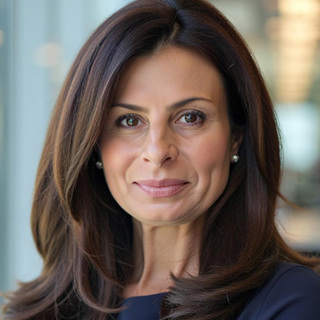
Chief Executive Officer, Cielo
Marissa is the Chief Executive Officer of Cielo, the world’s leading global talent acquisition partner. She joined Cielo in 2015 as Senior Vice President of Global Operations, where she was instrumental in scaling Cielo’s delivery model.
LinkedIn connect
Shradha Godishala is an incoming sophomore at the University of Wisconsin-Madison, studying data science and economics with a certificate in entrepreneurship.
LinkedIn connect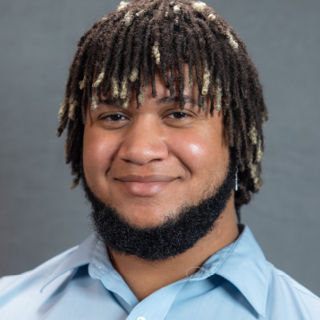
Jonathan David is a recent graduate from the University of Wisconsin-Milwaukee with a degree in business marketing and a certificate in entrepreneurship.
LinkedIn connect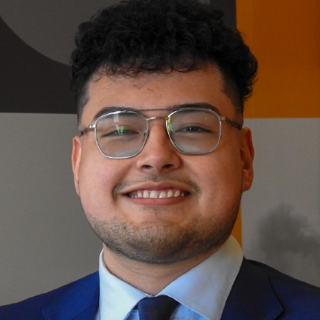
Juan Lopez is a student at the University of Wisconsin-Milwaukee and double major in IT management and finance.
LinkedIn connect
